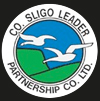About Christina:
Christina MacRae works as a freelance arts practitioner. She is also currently a part-time researcher at Manchester Metropolitan University where her research interests are in young children`s art making. With an original background in Early Years teaching, she then changed direction to study art. She is currently developing her own art practice, one that is concerned with collected objects and how we surround ourselves with them. As a researcher she is interested in putting art theory to work by allowing it to feed into her research methods. As an artist developing an emerging practice she is also trying to explore how she can use her practice as an ongoing enquiry into collection and relations between people and objects. The Arts and Humanities Research Council recently funded Christina to undertake a practice-led artist residency in an early years classroom: the Secret Life of Objects
Christina has joined up with fellow West Yorkshire artists, Susy Thomas, Shelagh Whitehead, and joevanka gregory, to form a practice focussed networking and reflective group: Threads
The practice of documentation: Guest Editor statement:
"The theme of this guest editorship will be focussed on the practice of documentation. As a researcher and as an artist, documenting my work in the form of sketchbooks and journals is an important practice. It allows me to return to events, ideas, and objects for ongoing re-interpretation. I work collaboratively in schools and early years settings and at the moment I am experimenting with ways of opening my documentation out in order to make it a more shared, conversational and dialogic tool, instead of one mainly concerned with my own thinking. I would like to find out how other researchers, artists and teachers use documentation to as a shared space for reflection and for creative action. I am interested in how different approaches to documentation might leak into each other to form local and hybrid approaches, and how documentation can make visible and help sustain a creative community of practice. I also hope to explore the ethical dimension of documentation, both the difficulties that it can raise, as well as the potential for a creating a culture of relationality."

